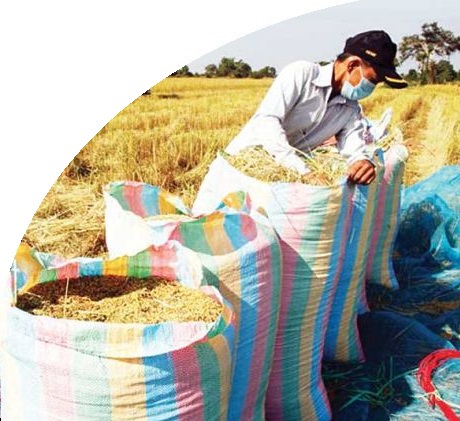The Cambodia Rice Federation (CRF) has urged the EU to revise its Safeguard Clause as it could prove devastating to the Kingdom’s rice industry. The EU committee has not announced its final decision.
Its move comes as the Committee of Professional Agricultural Organisations-General Confederation of Agricultural Cooperatives (Copa-Cogeca) last week urged the EU to speed up its enforcement of the safeguard clause on rice imports from Cambodia and Myanmar.
The Copa-Cogeca said the Trade Promotion General Directorate submitted a proposal during a December 4 meeting to enforce the safeguard clause on rice imports from Cambodia and Myanmar for a vote at the Generalised Scheme of Preferences Committee.
With no comment on the enforcement, it said the Committee intends to take action on the issue.
“The Committee delivered a ‘no opinion’ decision, which allows the [European] Commission to move forward with the adoption of the legal proposal."
“The safeguard investigation carried out by the Commission reached the same conclusions – the increasing imports of rice from Cambodia and Myanmar have caused serious difficulties for the entire EU rice sector,” said the Copa-Cogeca.
However, this has been disputed by the CRF, which previously explained to the EU committee that Cambodian rice does not impact the EU rice industry, said its vice-president Hun Lak.
“It is not the first time Italy and Spain complained about the slowdown of their rice industry, but this is not caused by us. [We supply] a different type of rice and it is the consumers’ choice of which variety they prefer,” he said.
Impact of tariffs
Customs duty will be imposed at €175 ($198) per tonne in the first year, €150 in the second year and €125 the year after, according to the first draft of the safeguard clause, issued on November.
Italian rice farmers first complained about rice imports in 2014 and argued that the imports were harming EU farmers.
“Tariffs will impact the supply chain. Our infrastructure is not yet ready to save the cost of logistics. We will face heavy competition in our rice market with neighbouring countries."
“It is unfair to us . . . our farmers also try their best to produce good quality rice to make a living and we are still a developing country,” he said.
Noting that the EU’s safeguard clause including all types of rice was an oversight, he called on the EU members to intervene in the matter. “They also support us and are willing to veto or choose not to be in the voting meeting. It is really a very sensitive issue for Cambodia,” he said.
Amru Rice CEO Song Saran said more than 75 percent of Cambodian rice exports to the EU is fragrant rice, stressing this does not impact EU farmers.
“The majority of rice we export to EU countries is fragrant rice, which is not able to grow in their countries. I would like to request the European Commission not to include fragrant rice in the safeguard measure,” he said.
This article was originally published in the Phnom Penh Post | Publication date 18 December 2018 | 08:30 ICT
